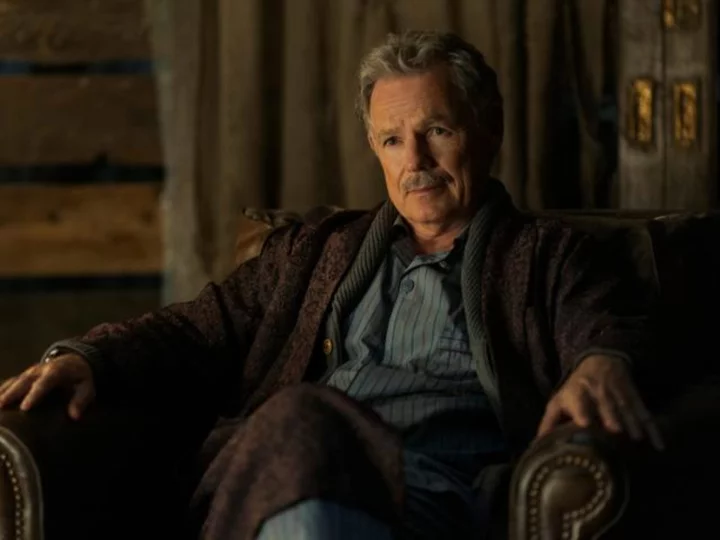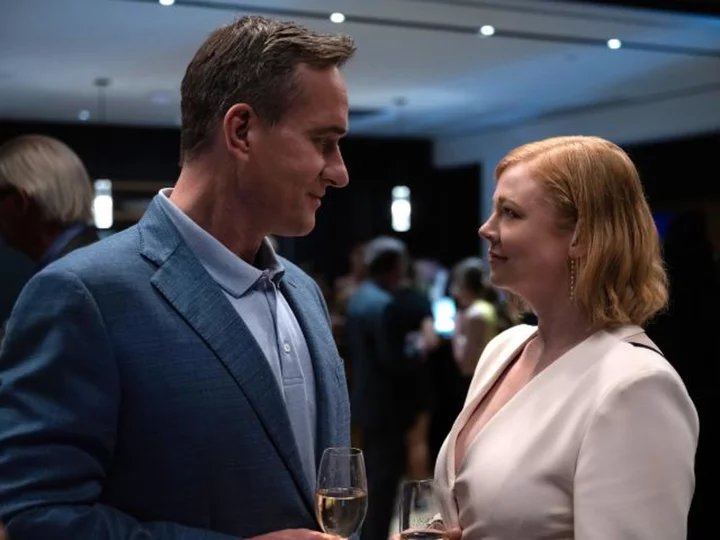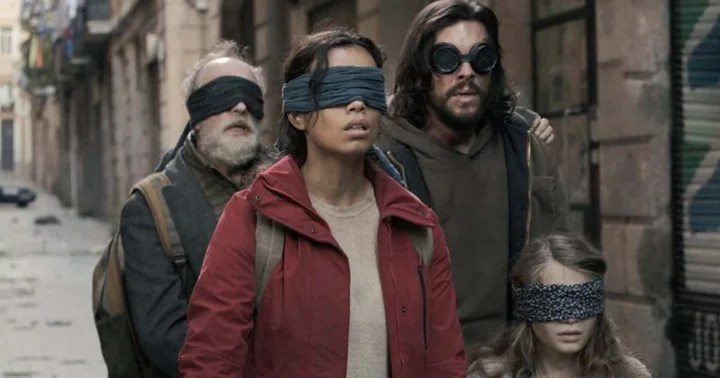Ambitious, intriguing and ultimately a trifle confounding, "The Fall of the House of Usher" represents Mike Flanagan's latest macabre series for Netflix, this time taking a page from Roger Corman by adapting (even more loosely) the works of Edgar Allan Poe. English majors should get a kick from the names and titles, but the emphasis on excess detracts from a limited series worth watching upon a midnight dreary but that doesn't deserve to be loved.
Having carved out a niche with "The Haunting of Hill House," "Midnight Mass" and most recently "The Midnight Club," Flanagan grafts this eight-episode series over Poe titles, only in a contemporary setting and with a more-than-passing nod to the transgressions of a major pharmaceutical company accused of knowingly selling an addictive product.
The patriarch of Fortunato Pharmaceuticals, Roderick Usher (an excellent Bruce Greenwood in the present day, and "Friday Night Lights'" Zach Gilford in flashbacks), frames the episodes by essentially confessing his sins to a prosecutor (Carl Lumbly) who had gone after his company.
The father of multiple children from different mothers, Roderick built Fortunato, as is shown via extensive flashbacks, with the help of his sister Madeline (Mary McDonnell in present day, Willa Fitzgerald in flashbacks), who shared her brother's grim childhood and his ruthless drive to succeed.
Roderick's grown kids, meanwhile, are an eccentric and diverse lot, living nasty lives of privileged decadence. All that takes a grisly turn thanks to a mysterious woman (a very spooky Carla Gugino) who appears to be going after them one by one, and whose seemingly supernatural vengeance ties into slow-emerging revelations about the sacrifices, bargains and collateral damage that went into establishing Roderick's empire.
The sprawling cast includes Mark Hamill as Roderick's not-to-be-crossed lawyer/fixer and Kyliegh Curran (featured in Flanagan's Stephen King adaptation "Doctor Sleep") as Roderick's innocent granddaughter, Lenore, just as his first wife (Katie Parker) bears a familiar Poe name, Annabel Lee. And yes, Flanagan's wife, Kate Siegel, a staple of his movies and TV shows, is back here too.
Yet while "The Fall of the House of Usher" is certainly clever, weaving in titles like "The Tell-Tale Heart" and "The Raven," the series becomes a partial victim of a too-long tease that fosters impatience before a payoff that mostly delivers, without feeling wholly satisfying. There are strong moments -- particularly down the stretch as the "why" of all this mayhem is finally revealed -- that provide adequate compensation for the unnecessary detours along the way, but not much more.
Corman, notably, produced a series of Poe-inspired films starring Vincent Price in the early 1960s, "House of Usher" among them, whose low-budget underpinnings and florid design enhanced their gothic charms.
Flanagan (who directed half the episodes, with Michael Fimognari handling the rest) has more resources at his disposal, and rewards Netflix with another watchable title just in time for Halloween -- if not, Fortunato's corporate sins notwithstanding, one that's not as addictive as it could or should be.
"The Fall of the House of Usher" premieres October 12 on Netflix.









